Google’s Chrome Web Store offers many applications for that browser. These include apps for businesses — to help with accounting, invoicing, creating documents, setting appointments, logging phone calls, and performing other critical business functions. They also include sales and marketing apps — for ecommerce, email, search engine optimization, and social media.
There are two primary benefits to using Chrome apps.
- Apps are cloud-based so that, when synched with a user’s Google account, they can be accessed from any computer.
- Apps are easy to install and provide similar functionality to desktop software.
Here is a list of 10 apps merchants can use to manage their social media marketing efforts. Some of the apps link to third-party tools, while others only work within the Chrome browser. Visit the Chrome Web Store to see a complete list.
1. Sprout Social
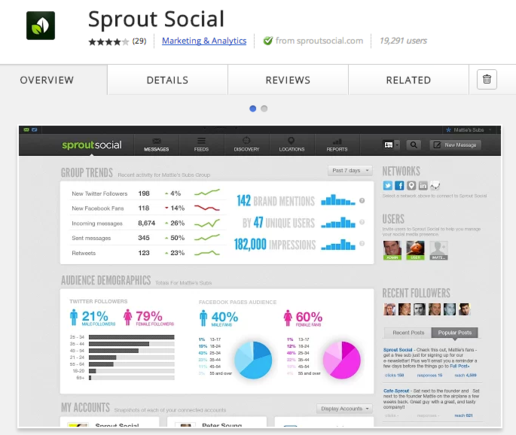
Sprout Social is a social media management application.
Sprout Social is a social media management tool to help businesses manage their social media engagement activities from a single dashboard. Clicking this app opens a new tab linking to the Sprout Social website.
—
2. Facebook Power Editor
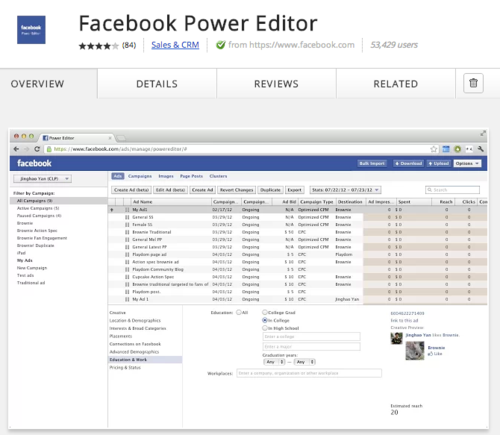
Power Editor manages Facebook ads inside Chrome.
Power Editor is a Facebook ads management tool that works only inside Chrome. According to Facebook, Power Editor is a “free tool that replaces and enhances the capabilities of the Bulk Uploader. Power Editor makes it easy to create, edit and manage ads and campaigns in bulk, even across a large number of different ad accounts.”
—
3. Facebook Cover Maker

This is a visual graphic editor for making Facebook cover images.
This is a visual graphic editor to create Timeline covers for their Facebook Pages.
—
4. SimplyCast Facebook Marketing
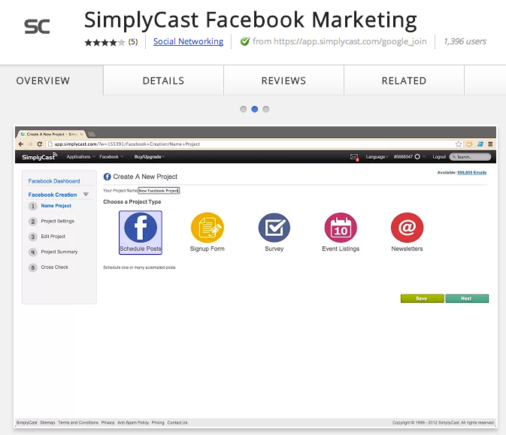
SimplyCast automates Facebook posting and creates apps.
SimplyCast’s Facebook marketing software automates Timeline posts, as well as creating apps and centralizing third-party apps into one account.
Features include app creation for email, surveys, forms and events. Users can also review reports on fan engagement with the Page.
SimplyCast offers a similar app for use with Twitter.
—
5. HootSuite

This app links users to their HootSuite account.
This app opens a user’s HootSuite account, similar to Sprout Social.
6. Hall Business Group Chat, IM, Video

Merchants can host private group chat via IM and video.
This app provides a hosted private chat service with group chat and IM, which could be used with teams or as a customer service tool. It features group chat rooms, instant messaging, video chat and screen sharing, and is available for use on desktop and mobile devices.
—
7. Social Exchange
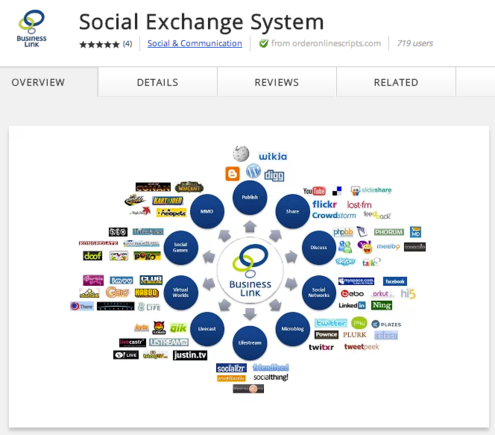
Use this app to grow the number of Facebook Fans and Twitter followers.
This is an social “traffic exchange” system to grow Facebook Fans, Twitter followers, YouTube views, and Google +1’s.
—
8. SocialSav Weekly Social Media Report
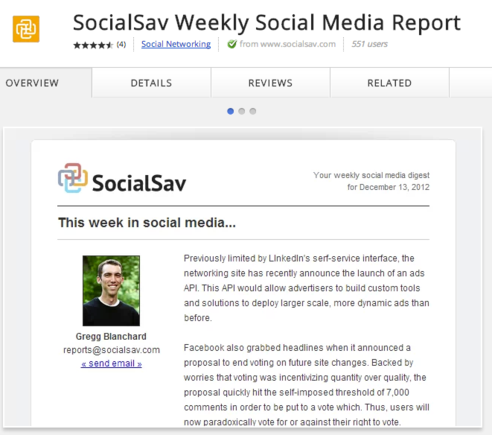
SocialSav is a free, weekly social media report.
SocialSav is a free, weekly social media report that helps users track social networking performance and news in a timesaving manner. It monitors key social networking performance statistics, tracks business competitors, and provides a list of the latest social media articles.
—
9. Streamie

Streamie is a real-time Twitter client that runs within Chrome.
Streamie is a real-time Twitter client that runs within Chrome. New tweets appear in the timeline immediately when someone posts them to Twitter.
—
10. Instagram Tools
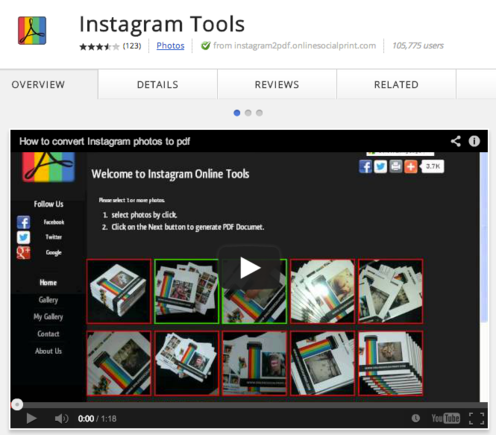
Instagram Tools create PDF documents and online slideshows.
Instagram Tools create PDF documents and online slideshow presentations from Instagram Photos.
How to Install Chrome Apps
Follow these steps to install Chrome apps.
- Click the blue “Add to Chrome” button located in the upper right-hand corner of each app’s profile page.

Add to Chrome button.
- When clicked, a window appears confirming that you want to add the app. Click “Add” to continue.

Add to Chrome confirmation window.
- Once the app is installed, its icon gets added to the New Tab page on the browser to make it easy to find and open.

App icons appear on the New Tab page.
- The first time you click the icon, you will be required to launch the app, which is done by clicking a green “Launch App” button.

Launch app button.
Chrome apps fall into three classifications:
- Link to websites. Some apps do nothing more than take users to their corresponding websites. Sprout Social and HootSuite are examples.
- Specialized websites. Other apps are websites specifically developed for use within Google Chrome and contain features that are not found on their regular websites.
- Chrome-specific. Some apps rely on certain Google Chrome features and can only be used within the browser itself.
Conclusion
Google Chrome’s apps are designed for ease of use. Because they are cloud-based, downloading complicated desktop software is no longer necessary. Merchants can take advantage of many business-oriented apps to increase productivity and manage sales and marketing efforts.




